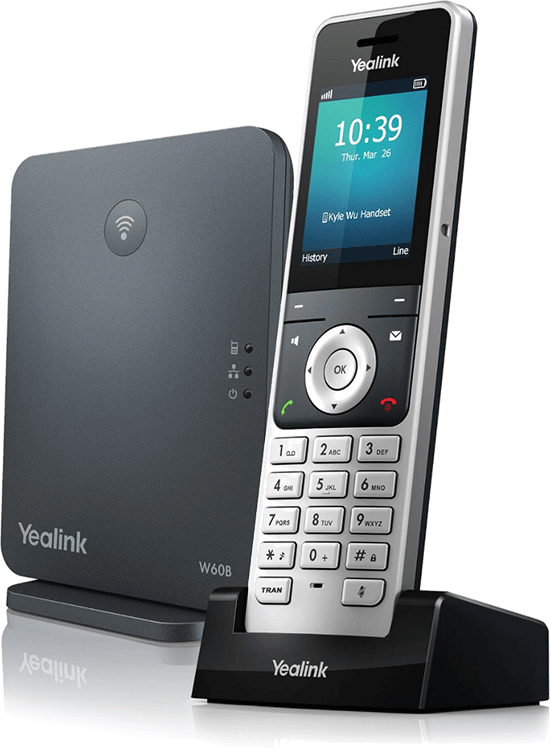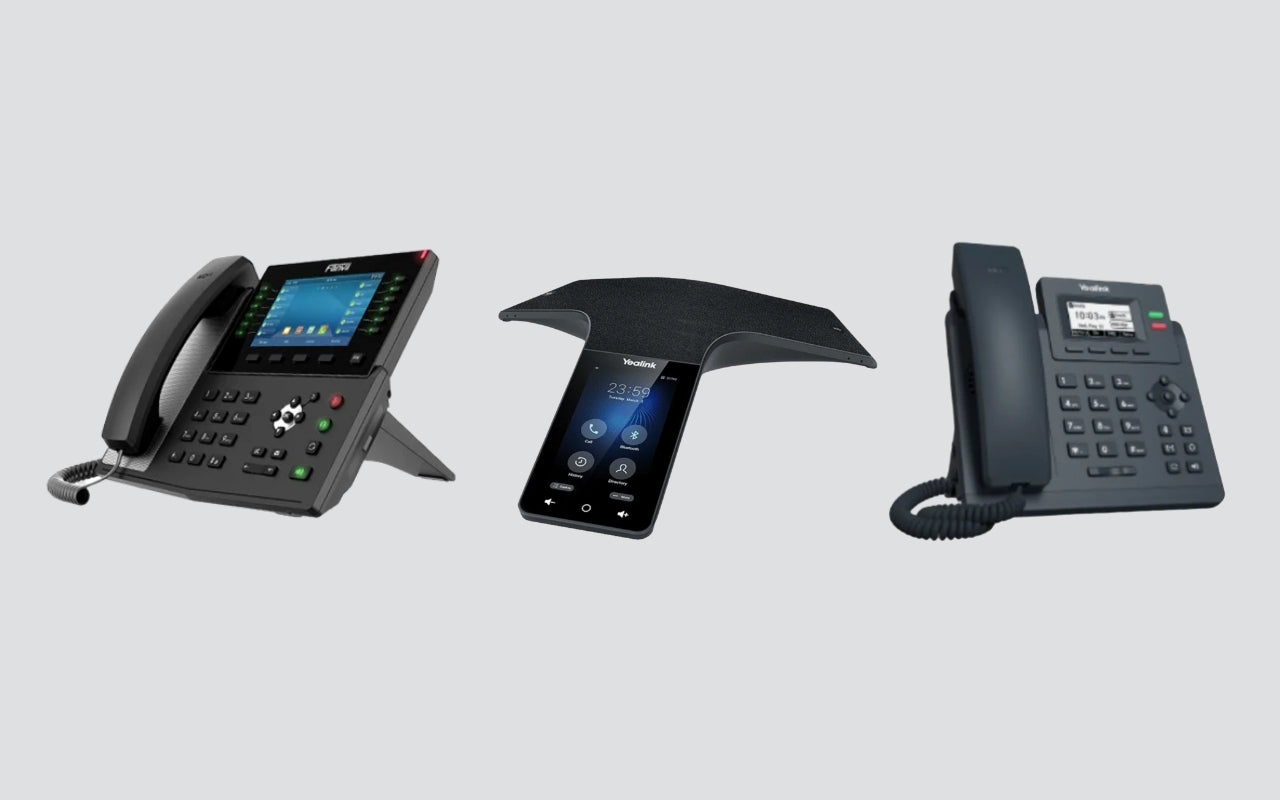
Article Detail
A Guide to Understanding IP Phone Systems and Its Advantages
Good communication helps businesses grow. Whether talking to customers, working with teams or helping clients, having a strong phone system makes everything easier. Old landline phones worked well but new technology brings better options.
Many businesses now switch to IP phone systems for lower costs, better features and more freedom. But what is an IP phone system and why do companies love it?
This guide explains everything in a simple way. You’ll learn what an IP phone system does, how it works and why businesses prefer it over old phone lines.
What Is an IP Phone System?
An IP phone system allows people to make and receive calls through the internet instead of traditional telephone networks. The IP in the name means Internet Protocol which helps voice data travel digitally across a network. Its key features are:
- Call Forwarding & Routing – Redirects incoming calls to another phone or extension to ensure no missed calls.
- Voicemail-to-Email – Converts voicemails into email messages which allows users to access them anytime.
- HD Voice & Noise Cancellation – This delivers crystal-clear audio and reduces background noise for better call quality.
- Multi-Device Compatibility – Works across desk phones, mobile apps and computers by enabling communication from anywhere.
How Do IP Phones Work?
An IP phone changes voice into data and sends it through the internet. The process works like this:
- The phone picks up your voice and turns it into small data pieces.
- The data moves through the internet to the other person.
- The receiver’s phone puts the data back together and plays the sound.
This all happens in a blink. Unlike old phones that need telephone lines, IP phones only need a good internet connection.
Types of IP Phones
IP phones come in various types, each designed to meet specific communication needs. Below are the different types of IP phones and their key functionalities:
Desktop IP Phones
- Standard desk phones for offices.
- It offers clear voice calls and VoIP features.
- Support call forwarding and voicemail.


Wireless IP Phones
- Cordless phones using Wi-Fi.
- Ideal for mobile employees.
- Provides flexibility without cables.
Conference IP Phones
- Built for group meetings.
- High-quality microphones for clear audio.
- Reduces noise and echo.


Video IP Phones
- Combines video and voice calls.
- It has a built-in screen and camera.
- Perfect for remote meetings.
Advantages of Using IP Phones
IP phones provide a modern communication solution by offering efficiency, flexibility and cost savings for businesses and individuals.
1. Cost Efficiency
- Reduced Call Expenses – Cuts costs on long-distance and international calls by using the internet.
- Easily Expandable – Businesses can scale up or down without additional wiring or complex setups.
- Lower Maintenance Needs – Requires minimal maintenance compared to traditional phone systems and reducing operational expenses.
2. Advanced Functionality
- Seamless Connectivity – Users can keep their phone numbers and access features from any location.
- Smart Integration – Connects with email, CRM software, and video conferencing tools for a unified experience.
- Enhanced Call Handling – This offers features like call routing, voicemail transcription, and automated call menus.
3. Increased Productivity
- Multi-tasking Support – Employees can handle multiple calls, transfer calls seamlessly, and use collaboration features.
- Call Analytics & Reporting – Tracks call data, helping businesses improve customer service and optimize resources.
- Efficient Collaboration – Supports conference calls and video meetings, allowing teams to work together effortlessly.
4. Advanced Capabilities That Boost Productivity
- HD Voice delivers clear sound quality by eliminating background noise, ensuring every conversation is sharp and professional.
- IVR (Interactive Voice Response) enables efficient call routing by guiding callers to the right department or individual—without long wait times.
- CRM Integration connects your call system to customer data, giving your team instant access to caller data for more personalized service.
- Call Routing ensures every call reaches the right person or department quickly, improving response times and customer satisfaction.
5. Security & Reliability You Can Trust
In today’s digital world, securing communication channels is critical. A modern IP phone system comes equipped with advanced security features to combat cyber threats. It secures calls with encryption, protects access with firewalls, and defends data using strong passwords. It safeguards your system to prevent dropped calls and keep your private information secure.
How to Pick the Right IP Phone System
Before switching to an IP phone system, businesses check a few important factors.
Business Size and Needs
A small shop may need basic calls while a large company may need customer support tools, conference calls and call tracking.
Internet Speed
IP phones work best with strong internet. Businesses upgrade to high-speed broadband for smooth calls.
Compatibility with Devices
Some businesses already have phones and headsets that work with IP systems. Checking compatibility which saves money.
Remote Work Support
If employees travel or work from home, a system that connects mobile phones and laptops works best.
Strong Security
A good IP phone system stops unauthorised access using call encryption, passwords and firewalls.
Why Companies Move to IP Phones
Businesses choose IP phone systems because they cost less, work anywhere and have better features.
Here’s why companies leave landlines behind:
Saves money
No expensive call fees.
More flexible
Employees can take calls anywhere.
Clearer sound
No crackling or static.
Grows with business
It is easy to add more phones.
Reliable
Calls are forwarded to mobiles if the internet drops.
No matter the business size, switching to an IP phone system brings long-term benefits.
Conclusion
An IP phone system helps businesses to communicate smartly. With lower costs, better mobility, and advanced features, companies stay connected, save money, and work efficiently.
As technology grows, companies that adopt IP phone systems will stay ahead, cut expenses, and serve customers better. If a business needs a modern phone system, then it is the perfect time to switch to an IP solution and enjoy the benefits.
At BDE Technology, we provide cutting-edge IP phone solutions that help your businesses stay connected effortlessly. Upgrade today and experience the future of business telephony!



